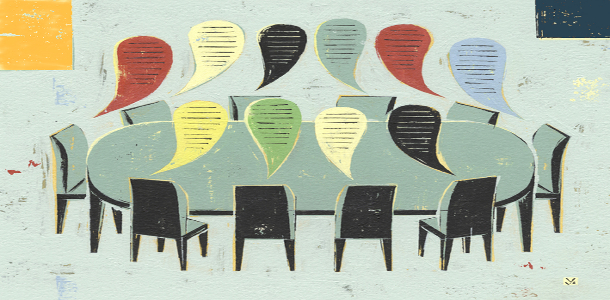




Improve your writing with story prompts
Played any writing games lately? One of my favorites is Storymatic, a game that uses a series of cards to generate story ideas. With each turn, players draw two character cards, such as “a butcher” and “the object of a secret crush,” along with two object cards, such as “a flat tire” and “a secret hiding place.” The goal is to combine all four elements into one story. The person with the most creative story wins. Playing these types of games helps me think creatively and stretches my storytelling skills. So I thought it might be fun to play a few rounds of...

Fun with corporate jargon
Corporate communicators spend countless hours dealing with jargon. We delete it. We replace it. We enforce style guide rules related to it. We argue about it. Managing jargon is a staple in many careers. Sometimes it’s fun to embrace jargon. Below are 20 outlandish examples of corporate jargon that could be used when speaking with co-workers, or with your boss, or at just the right moment during a meeting. (Terms come from the Urban Dictionary and The Ridiculous Business Jargon Dictionary.) 1. Anecgloat—a story that makes the speaker look good. Before every department...

13 French terms for writers
Not many of us may realize that around 45 percent of English vocabulary is of French origin. We use words such as art, establish, genre, liberty and perfect every day without realizing they derive from French. Below are some French expressions related to writing and literature. How many of these can you work into your content? (Definitions from Wordnik and Oxford Dictionaries.) 1. Avant-garde— radically innovative or cutting-edge movements in art, music, or literature; a person or group of people who invent or promote new techniques, especially in the arts. JRR...

Fortify your writing with strong nouns
By now, the writers and editors who read PR Daily are familiar with the advice to use strong verbs. They are the powerhouse of your sentence, and choosing clear, active verbs instead of throwaway ones will improve your message. What about using strong nouns? The same rules apply. In addition to using nouns that are clear to the reader, use specific, descriptive, concrete words, instead of general or abstract words. For example, we will most often use the word “house” to describe a house, but when appropriate, we could also use shack, shanty, lean-to, chalet, cabin,...













